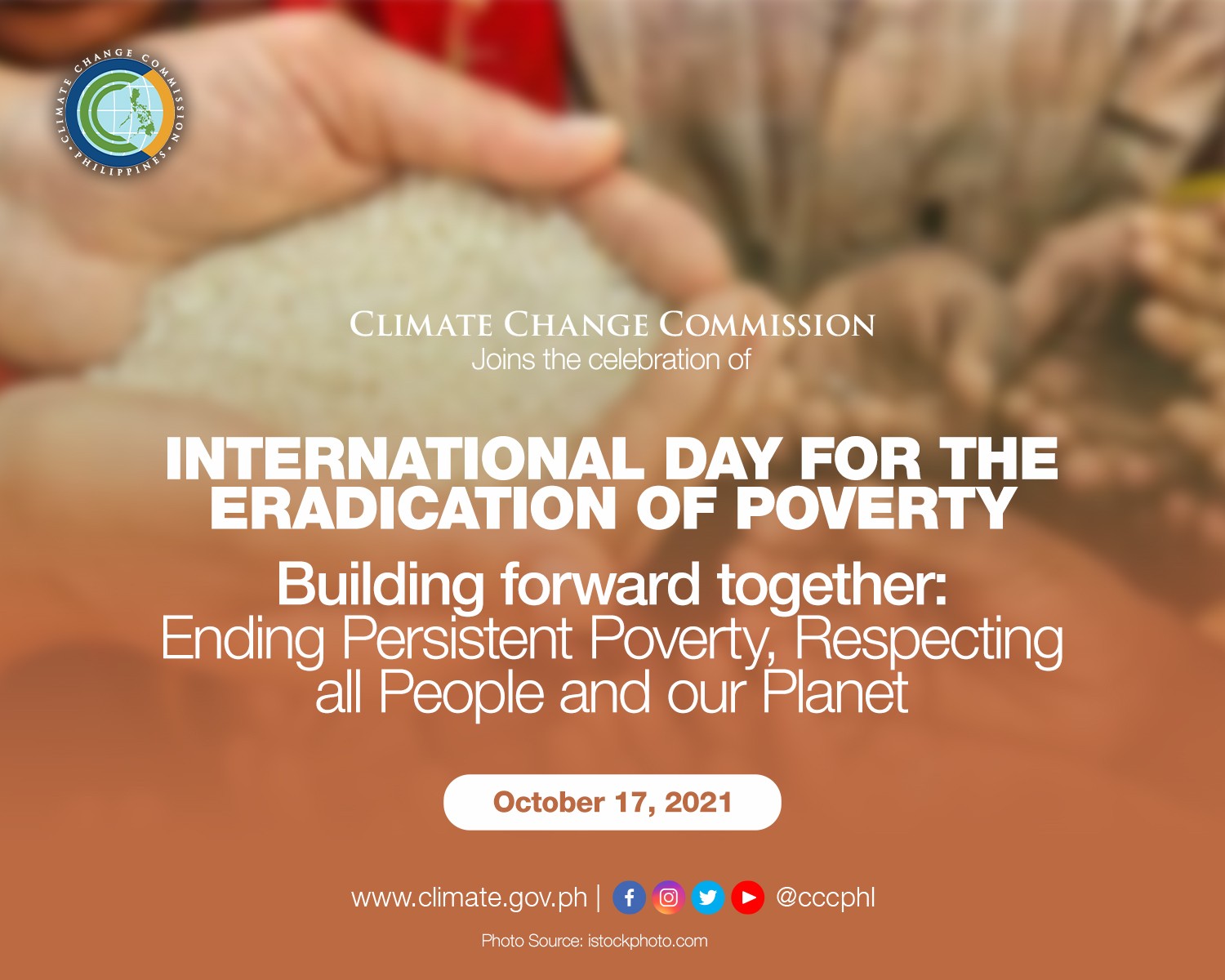
October 16, 2021 Saturday

MANILA, 17 October 2021 — In observance of the International Day for the Eradication of Poverty, the Climate Change Commission (CCC) pledges for solidarity and promotion of concrete activities geared toward ending poverty.
October 17 is designated as the International Day for the Eradication of Poverty through UN Resolution No. 47/196, which aims to raise awareness and highlight the problems faced by poverty-stricken people or families and work towards eradicating poverty globally in all its forms.
People living in poverty experience many injustices in life, including dangerous work conditions, unsafe housing, lack of nutritious food and water, unequal access to justice, lack of political power, and limited access to health care. They are the ones most exposed, least resourced and suffer the most from the climate emergency and the pandemic.
They are at the frontline of climate change impacts with severe drought bringing hunger, and floods wiping away crop fields, leading to loss of livelihoods. They work largely in the informal sector and often live in low-quality, unsafe housing in unhealthy environments next to dumping sites or in unsafe areas along mountain edges or swamps. When a disaster strikes, their homes and lives are the first to be destroyed. Moreover, they are often excluded from a sustainable lifestyle simply because of their lack of access to financial and physical resources, and yet they also risk being blamed for this.
The COVID-19 pandemic reversed years of progress in the fight against poverty. Millions of people around the world have been pushed into poverty as a result of the economic shutdown, especially in areas where poverty rates are already high. The ‘new poor’ join the ranks of people already living in poverty pre-pandemic.
As the country embarks in post-COVID recovery and building back better, the CCC said that the people living in extreme poverty should not be returned to the structural disadvantages and inequalities of the past. Rather, they must build forward.
This year’s theme, “Building forward together: Ending Persistent Poverty, Respecting all People and our Planet,” means transforming the relationship with nature, dismantling structures of discrimination that disadvantage people in poverty and building on the moral and legal framework of human rights that places human dignity at the heart of policy and action.
Poverty eradication strategies, climate action and post COVID-19 recovery efforts must equally reach the communities who have been pushed furthest behind and actively encourage and engage them in the implementation of policies and decision-making processes that directly affect their lives.